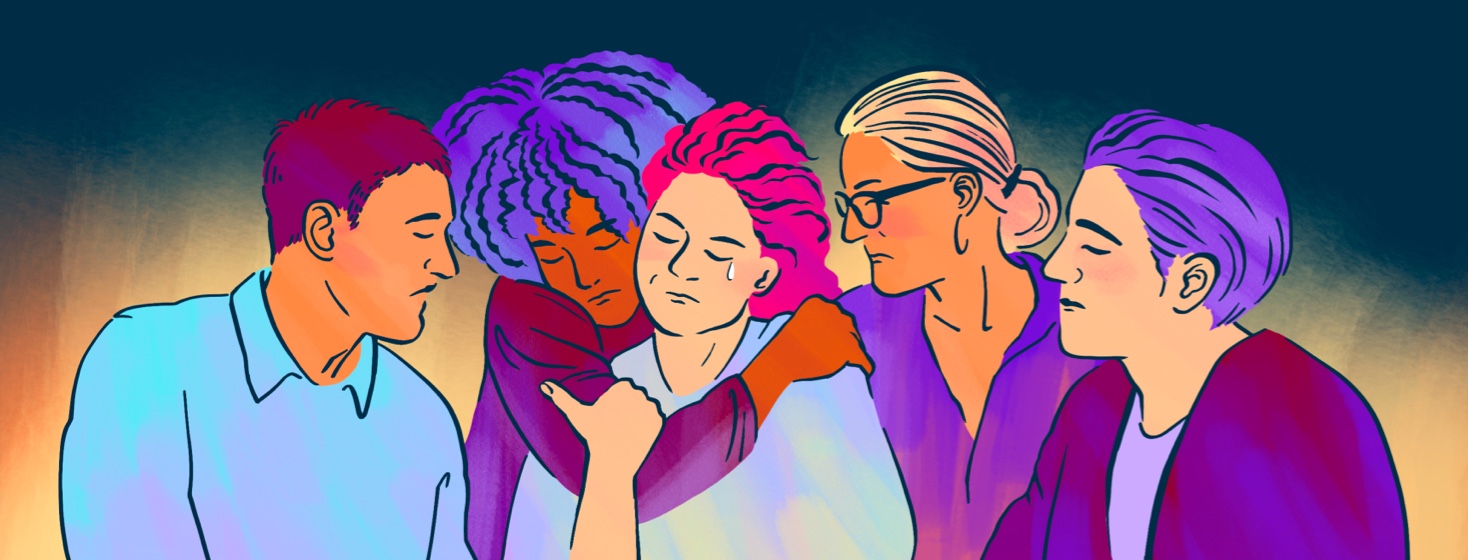Considerations When Sharing Your Cancer Diagnosis
When or if to share your blood cancer diagnosis is an extremely personal decision, and there is no wrong answer for patients. Some share, some don’t. While we might feel comfortable sharing almost everything else about our lives, we tend to keep serious health issues rather close to the vest.
Others share on a need-to-know basis
There are patients in my support group who have shared their cancer diagnoses with the absolute bare minimum of people, keeping even close relatives out of the loop. While unimaginable to me, personally, for them, they feel it’s the right thing to do.
This or That
Have you shared your cancer diagnosis story?
It's important to me to share
For me, I felt it was important to share my multiple myeloma diagnosis. How about you? How have you shared your diagnosis?
If you choose to share your diagnosis broadly with your family, friends, and personal networks, prepare yourself for two very different situations.
Sharing your cancer diagnosis
When sharing your cancer diagnosis, a great number of your community will likely inundate you with offers to help. At first, you might refuse that assistance, as 1) you might not feel you need any help, and 2) you might feel awkward at imposing on others,
However, remember how you felt when you were first diagnosed, with all the thoughts racing through your head, among them, likely, a feeling of helplessness? Well, your friends, upon hearing your news, will likely have similar reactions.
After all, your friends are ...friends. They care about you and love you.
You might not need their immediate help, but they very likely feel a need to help you. Feeling powerless in your fight, they want to take as much control for themselves, subconsciously at the very least, as they can.
Again, you might not need a ride to treatment or a freshly prepared meal, for example, but if it’s all they can do to help, your friends might need to drive you to treatment or drop by and deliver that meal.
Take help. If not for you, then for them.
Featured Forum
View all responsesYour friends are friends
Remarkably, I have heard members in my support group complain that upon sharing a cancer diagnosis, “You find out who your real friends are.”
Whenever I hear that, I caution my peers to be careful in their judgment. I urge them to consider giving their friends in question a bit of a break, and here’s why: Have you ever been in a situation where you didn’t know what to say?
What did you do?
Anything?
At all?
As humans, we have varying degrees of emotional intelligence, and while we often grow through experiences, many of us haven’t gained that experience. Many times we’re lost, very lost, before we find our way.
Stunned into silence
Let me share a very personal example with you.
A few short months after my diagnosis, I participated in an open house of sorts for cancer patients, where we spent the better part of a day at the infusion center going through various exercises and activities. The day also served as a retirement party for our support group facilitator and the transition to a new counselor.
Members of the medical offices downstairs came up in the afternoon to wish our facilitator well in her retirement. One of the nurses shared to the group that the day was also her last day at the facility as she was going out on medical leave.
When one of our group wished her well and shared how she was looking forward to her coming back to work, the nurse said, “I won’t be coming back. It’s a permanent leave. I’ve been diagnosed with ALS.”
Lou Gehrig’s disease.
The air seemed to leave the room, and we all sat in stunned silence. And, do you know what we did, each and every one of us in the room, including those very same patients who had spoken about “learning who your friends really are?”
Collectively and individually, we did nothing. The moment was simply too big for us, even though a great many of us felt we knew better through the experience of our own serious health crises. Even though I had never met the nurse before, I still shamefully regret not getting up and giving her a hug and asking her what I could do for her.
I thought I knew better. Experience taught me a tough lesson. I definitely know better now.
Featured Forum
View all responsesGive your friends a break
If you find yourself questioning who your real friends are, I’d encourage you to give your friends a break, at least initially. To do that, you need to get over yourself. Remember, your friends have a myriad of thoughts and emotions running through their heads as well.
When you share a cancer diagnosis with your friends, you dump a sudden, shocking bit of news. Even those with the highest levels of emotional intelligence find it challenging.
A great many of your friends won’t know how to react or what to say. Remember, they’re your friends, and they are in your life for a reason. Give them a break and help them along the way.
When sharing your cancer diagnosis, tell your friends they are important to you and that you care for them. Then, tell them you don’t know how the future will play out, but that you hope you both can work your way through this difficult moment — and those surely ahead down the road — together, through conversation.
After all, that’s what friends — real friends — do, right?

Join the conversation